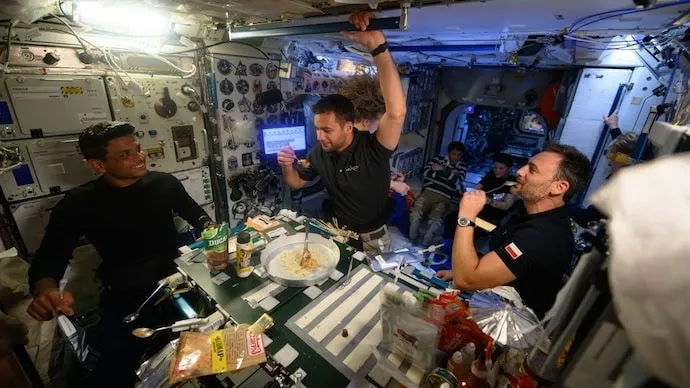As space agencies prepare for longer missions to the Moon, Mars, and beyond, the search for sustainable and nutrient-dense food sources has intensified. Recent research explores insects—mealworms, crickets, and other edible bugs—as viable alternatives for astronauts, offering high protein content, low resource demands, and reduced environmental footprint. Scientists highlight that insects can be farmed efficiently in microgravity and require minimal water and space, making them ideal for closed-loop life support systems. While unconventional, incorporating insects into space diets could address nutrition, sustainability, and long-term mission feasibility, signaling a potential paradigm shift in how humans sustain themselves beyond Earth.
The Case for Insect-Based Nutrition in Space
Traditional space diets rely heavily on pre-packaged, freeze-dried, or rehydrated meals, which are resource-intensive to produce and store. Insects, however, offer a compelling alternative: they provide complete proteins, essential vitamins, and minerals while consuming far fewer resources than conventional livestock.
Mealworms and crickets, in particular, can be farmed using minimal water, feed, and space—critical considerations for spacecraft and extraterrestrial habitats. Their rapid growth cycles and ability to thrive on agricultural byproducts make them a practical solution for closed-loop ecosystems.
Scientific and Technological Insights
Experimental studies have shown that insects can adapt to controlled, confined environments, and ongoing research is exploring their cultivation under low-gravity conditions. Nutritional profiling confirms that edible bugs are rich in protein, iron, and omega-3 fatty acids—nutrients vital for maintaining muscle mass, bone density, and cognitive function in space.
Additionally, insect farming aligns with sustainability imperatives. Producing one kilogram of edible insects requires substantially less water, feed, and greenhouse gas emissions than beef or pork. This efficiency could reduce logistical costs for long-duration missions, while also complementing space-based agricultural initiatives.
Cultural and Psychological Considerations
Incorporating insects into astronaut diets is not without challenges. Food acceptance remains a key factor, as cultural norms may influence willingness to consume bugs. Researchers are developing innovative methods to process insects into familiar forms, such as protein powders, snacks, and rehydrated meal components, to enhance palatability and integration into standard menus.
Beyond nutrition, the psychological aspect of novel foods is critical for crew morale. Offering diverse and sustainable protein sources could contribute to food enjoyment, mental well-being, and the overall success of extended missions.
Implications for Future Space Exploration
As human presence in space extends beyond low-Earth orbit, resource-efficient nutrition will be essential. Insect-based diets could reduce dependency on resupply missions, lower costs, and provide a renewable protein source in extraterrestrial habitats.
Space agencies and private space ventures are increasingly evaluating insects not as a novelty, but as a practical solution to logistical and nutritional constraints. This approach underscores a broader shift toward sustainable life support systems, combining technology, biology, and behavioral science to prepare humans for life on other worlds.
Conclusion
Edible insects may soon transition from Earth-bound curiosity to an essential component of space nutrition. With high protein content, minimal resource requirements, and adaptability to controlled environments, mealworms, crickets, and other bugs offer a scientifically robust solution to the challenges of long-term space habitation. As research progresses, these tiny organisms could play a major role in sustaining humanity’s interplanetary ambitions.

Comments